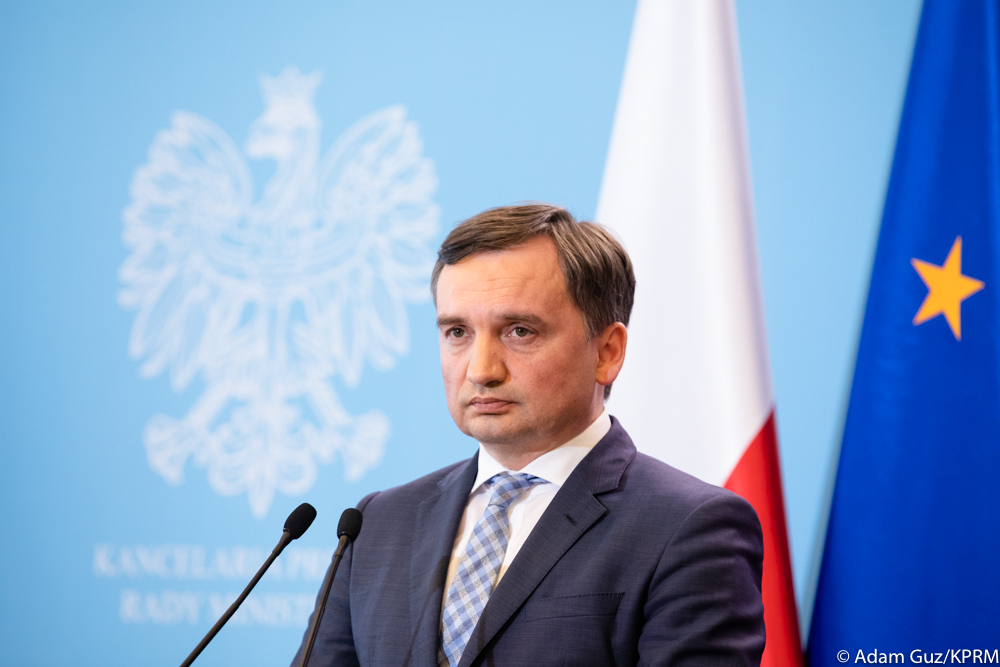Poland’s government has submitted a complaint to the European Court of Justice against the European Union’s plan to reduce gas use across the bloc by 15%. Warsaw argues that it was introduced in violation of the EU’s treaties because unanimity among member states was not obtained.
At the start of August, the EU adopted the emergency plan by a qualified majority vote among member states. Poland and Hungary were opposed, with Warsaw arguing that Brussels was calling for sacrifices and solidarity in one area but not in others.
In a written statement to the European Council at the time, the Polish government said it had “serious objections to the content of the [plan], including in particular a defective legal and treaty basis”.
Under the EU treaties, “decisions affecting the energy mix and energy security of the Member States should be adopted unanimously”, it continued. “Poland is opposed to any state or the European Commission imposing restrictions on other states.”
More more on Poland's opposition to the EU's plans to cut gas use, see our earlier report https://t.co/wLtZA45yiR
— Notes from Poland 🇵🇱 (@notesfrompoland) August 8, 2022
Yesterday, deputy justice minister Sebastian Kaleta revealed that, at the recommendation of the justice ministry, the government had filed a complaint to the ECJ against the EU’s gas plan.
“The regulation was issued in breach of the treaties, and was not processed under the unanimity procedure,” wrote Kaleta. This “depriv[ed] Poland of the possibility of exercising the right to veto, despite the fact that it is clearly stated in the treaties.”
“The EU is trying to take advantage of the energy crisis to fully take over competence in shaping the energy mix,” he added.
Kaleta highlighted article 192 of the Treaty on the Functioning of the European Union, which says that the European Council should “act unanimously in…measures significantly affecting a Member State’s choice between different energy sources and the general structure of its energy supply”.
W skardze podnosimy, ze UE próbuje wykorzystując kryzys energetyczny przejąć w pełni kompetencje w zakresie kształtowania miksu energetycznego. A to nastawiona na rosyjski gaz polityka klimatyczna UE prowadzona z pominięciem prawa weta jest właśnie przyczyną dzisiejszego kryzysu pic.twitter.com/nAltFmF6IK
— Sebastian Kaleta (@sjkaleta) November 3, 2022
Kaleta argued that the gas plan was just the latest in a number of ways that the EU has, over the years, “introduced new solutions in the field of energy” that involve “legal acts devastating for Poland”. As another example, he pointed to plans to reduce emissions by 55% by 2030.
Both Kaleta and the head of his ministry, Zbigniew Ziobro, hail from a United Poland (Solidarna Polska), a hardline junior partner in Poland’s ruling national-conservative coalition.
The party has taken a strongly eurosceptic line, with Ziobro, its leader, accusing the prime minister, Mateusz Morawiecki, of “agreeing to the diktat of Brussels and Berlin”. It has also argued for Poland to continue relying on coal rather than transitioning to greener energy.
Ziobro: Gdyby nas wysłuchano, każda rodzina mogłaby kupić węgiel za 900 zł https://t.co/uI7r84ZAgB
— Fakty RMF FM (@RMF24pl) October 15, 2022
Main image credit: Adam Guz/KPRM (under public domain)

Daniel Tilles is editor-in-chief of Notes from Poland. He has written on Polish affairs for a wide range of publications, including Foreign Policy, POLITICO Europe, EUobserver and Dziennik Gazeta Prawna.




















